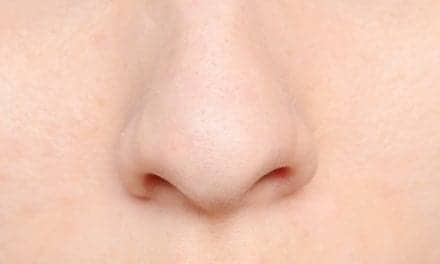A new study found that an investigational monoclonal antibody—reslizumab—showed improvements in lung function among patients with eosinophilic airway inflammation, a subtype of severe asthma. Reslizumab also produced improvements in asthma control that approached statistical significance, according to the findings presented at the [removed]annual meeting of the American College of Allergy, Asthma, and Immunology[/removed] in Phoenix.
This is the first time that the drug, which targets interleukin-5, a key player in the development of eosinophils, has shown efficacy.
Because some asthmatics do not have eosinophilic asthma, studies with an unselected population did not show an effect. To overcome that limitation, Mario Castro, MD, study author and professor at the Washington University School of Medicine in St. Louis, enrolled 106 volunteers with poorly controlled eosinophilic asthma and randomly assigned them to receive infusions of reslizumab or placebo at weeks zero, four, eight, and 12.
The study’s primary endpoint was change from baseline to the end of therapy in the Asthma Control Questionnaire, but researchers also examined measures of lung function and the number of clinical exacerbations.
Patients receiving reslizumab had a decline on the Asthma Control Questionnaire of 0.7 points, where the clinically significant difference is regarded as a drop of 0.5 points. In contrast, those on placebo had a drop of 0.3 points. The difference did not quite reach statistical significance (p=0.0541), which was probably a result of small numbers in each arm of the study, according to the researchers. The score did reach significance, however, among patients who had nasal polyps at baseline (p=0.019).
The change from baseline in FEV1, however, was significant at p=0.0023, increasing by 0.2 L in patients getting the drug and falling by 0.1 L in those on placebo. Predicted FEV1 was also significantly improved among reslizumab patients at p=0.001.
The researchers found that the number of clinical exacerbations was lower in the treatment group than among placebo patients—four versus 10—but the difference was not significant, and still lower overall than expected.
The proportion of patients with any adverse event was similar between the groups, at 38% for those receiving reslizumab and 40% for those on placebo. One patient in each group stopped therapy, while two reslizumab patients and one placebo patient had serious adverse effects.
In an interview with MedPage Today, Gailen Marshall, MD, editor of the Annals of Allergy, Asthma and Immunology, who was not part of the study, said the importance of the findings is not the apparent efficacy of the molecule, but that it confirms the variability of asthma and that not all asthma is eosinophilic.
“Whether or not this molecule ever sees the light of day—clinically or not—it is adding to the understanding about the phenotypic variability of that illness we call asthma,” he said.
Source: American College of Allergy, Asthma, and Immunology









